Information and electric vehicles of the [object Object] brand
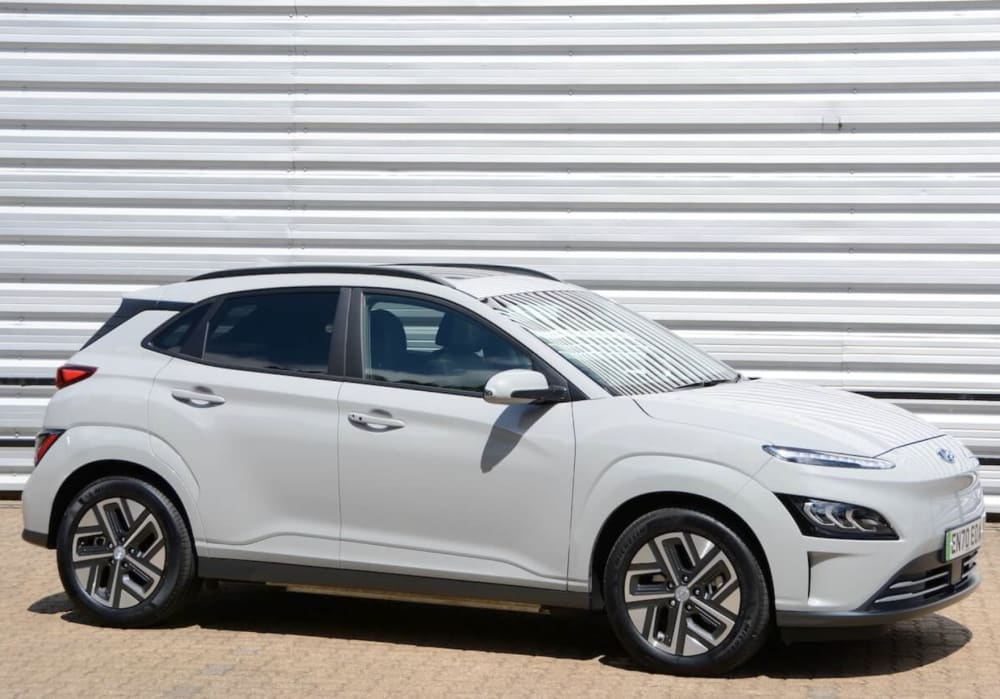
![[object Object] logo](https://res.cloudinary.com/donyiousk/image/upload/w_80/f_auto/c_scale,w_500/v1/car/irc3cpsryvbwpwco54sz)
Hyundai
Luxury redefined: Electric.

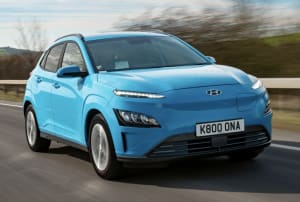
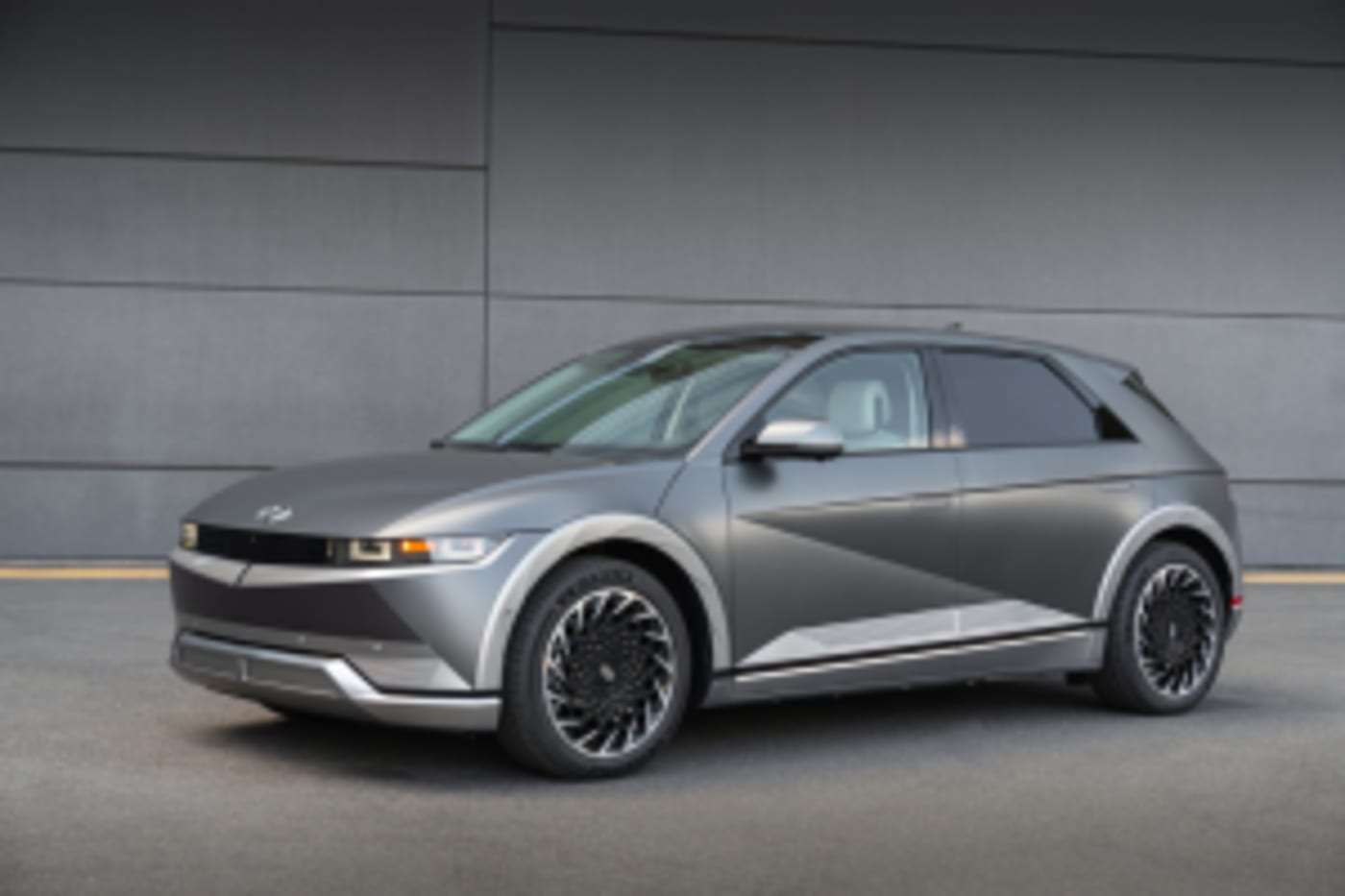
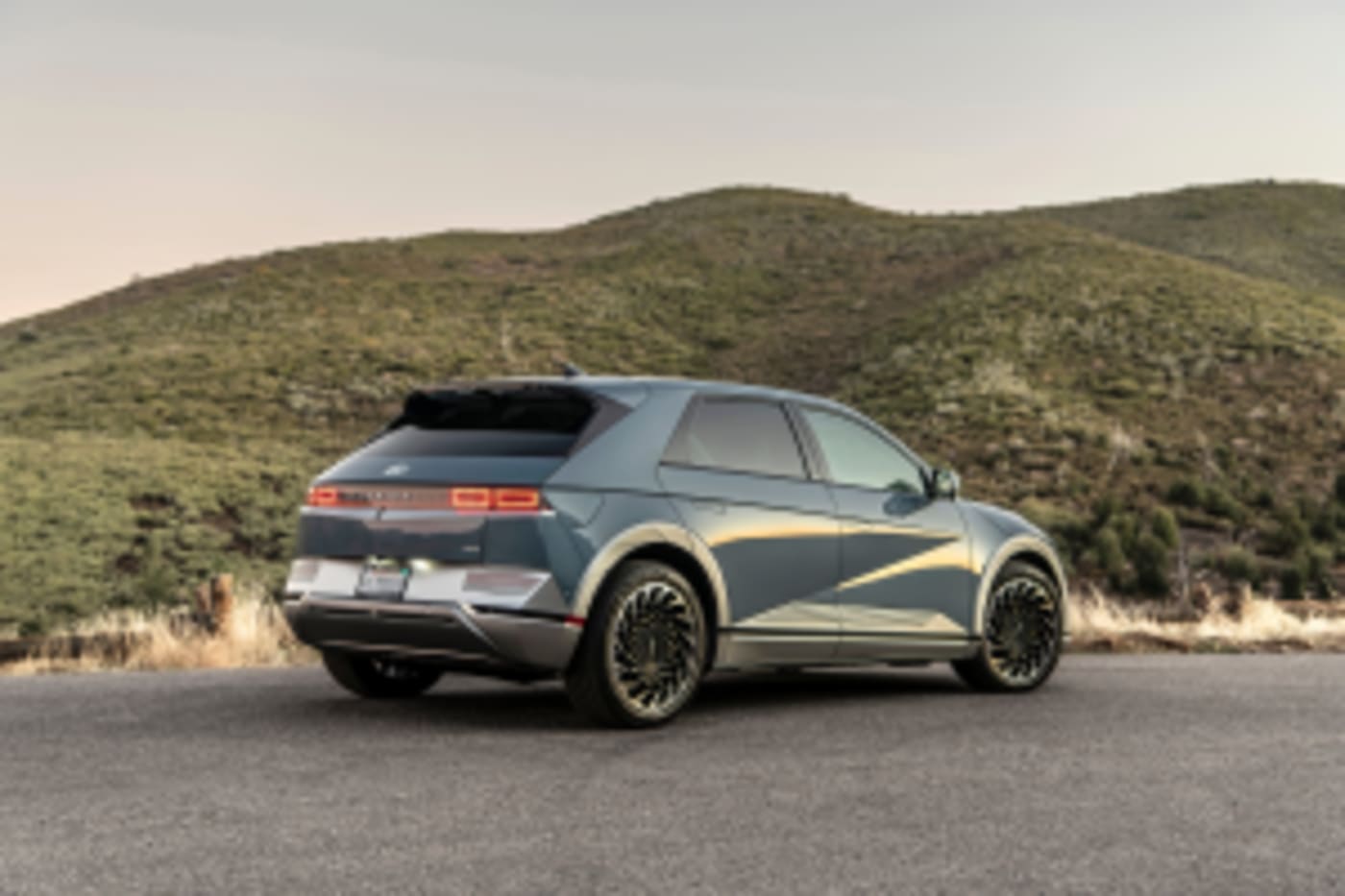
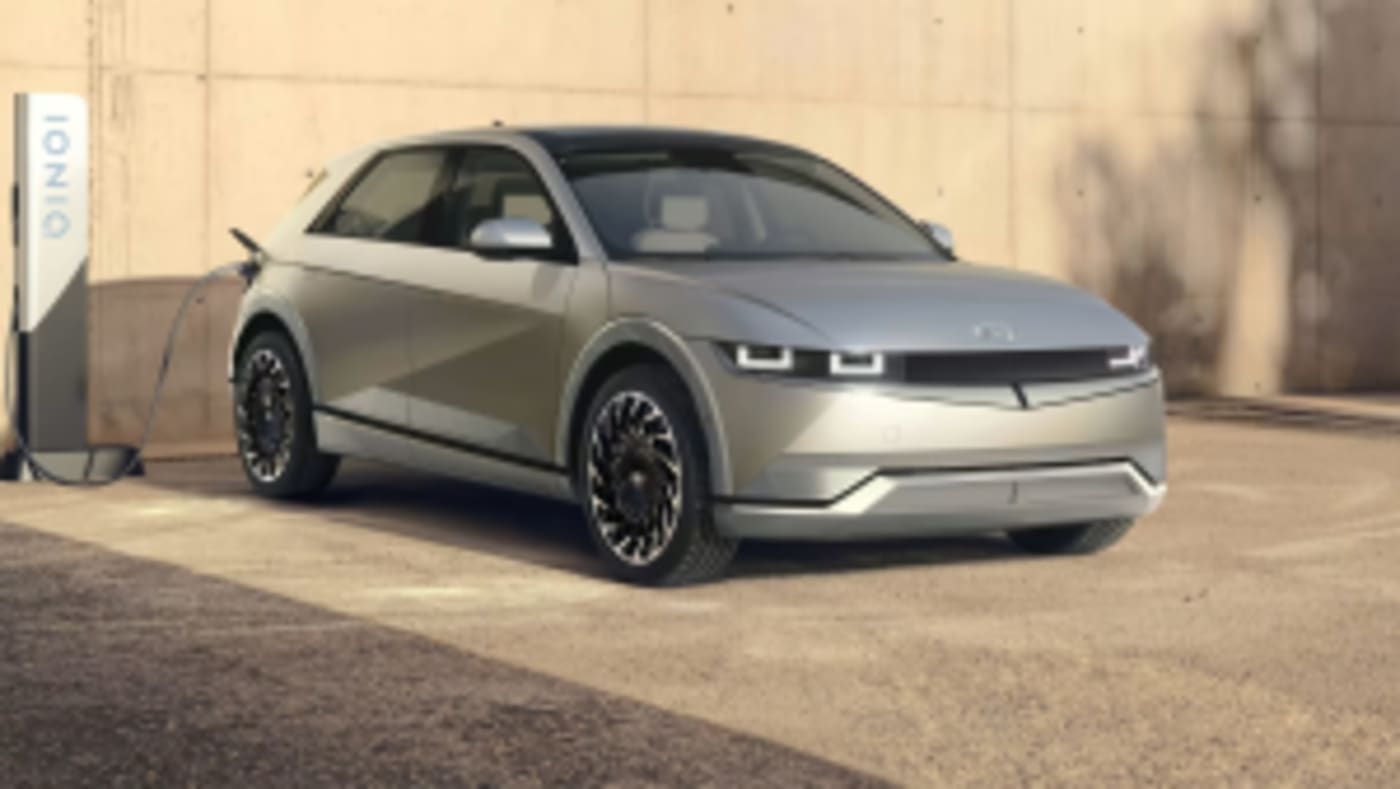
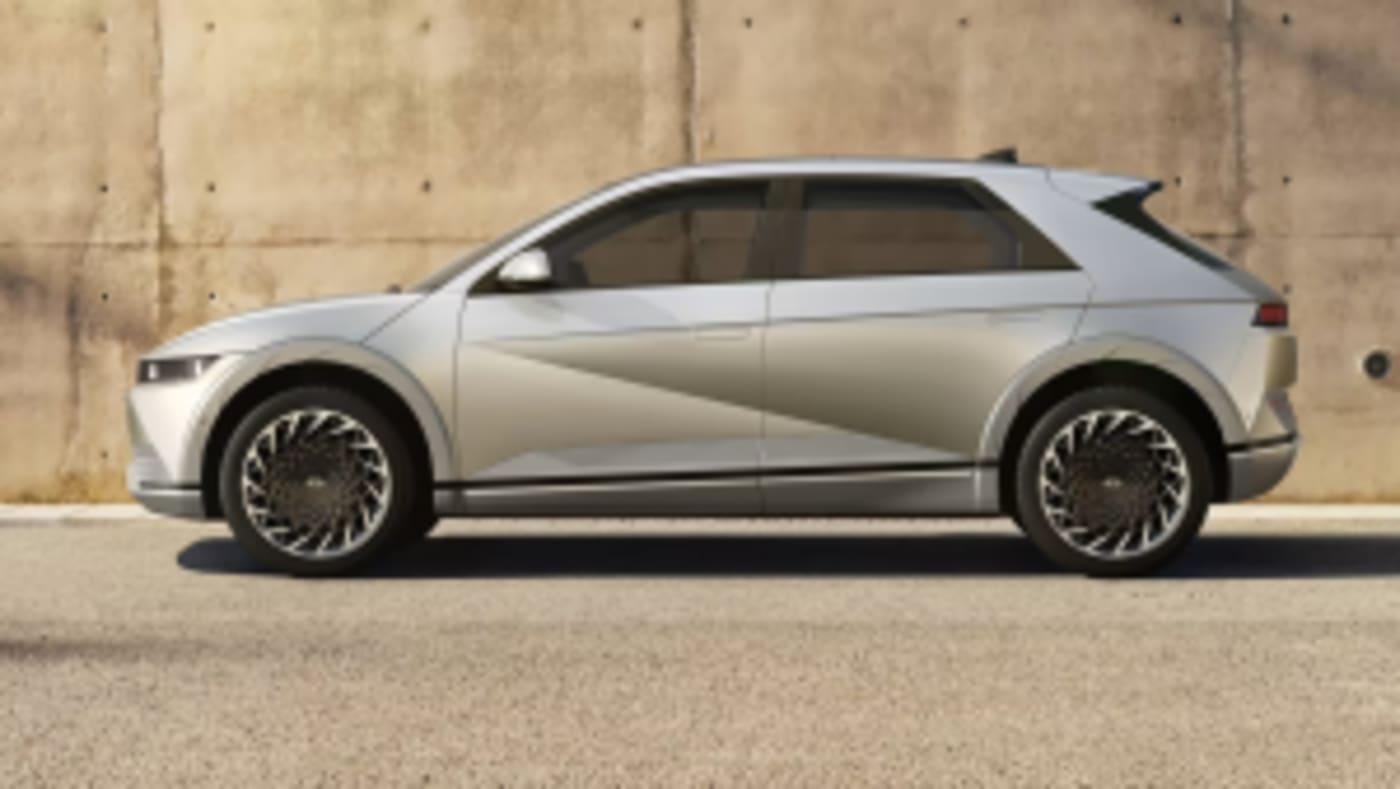
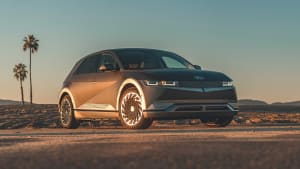


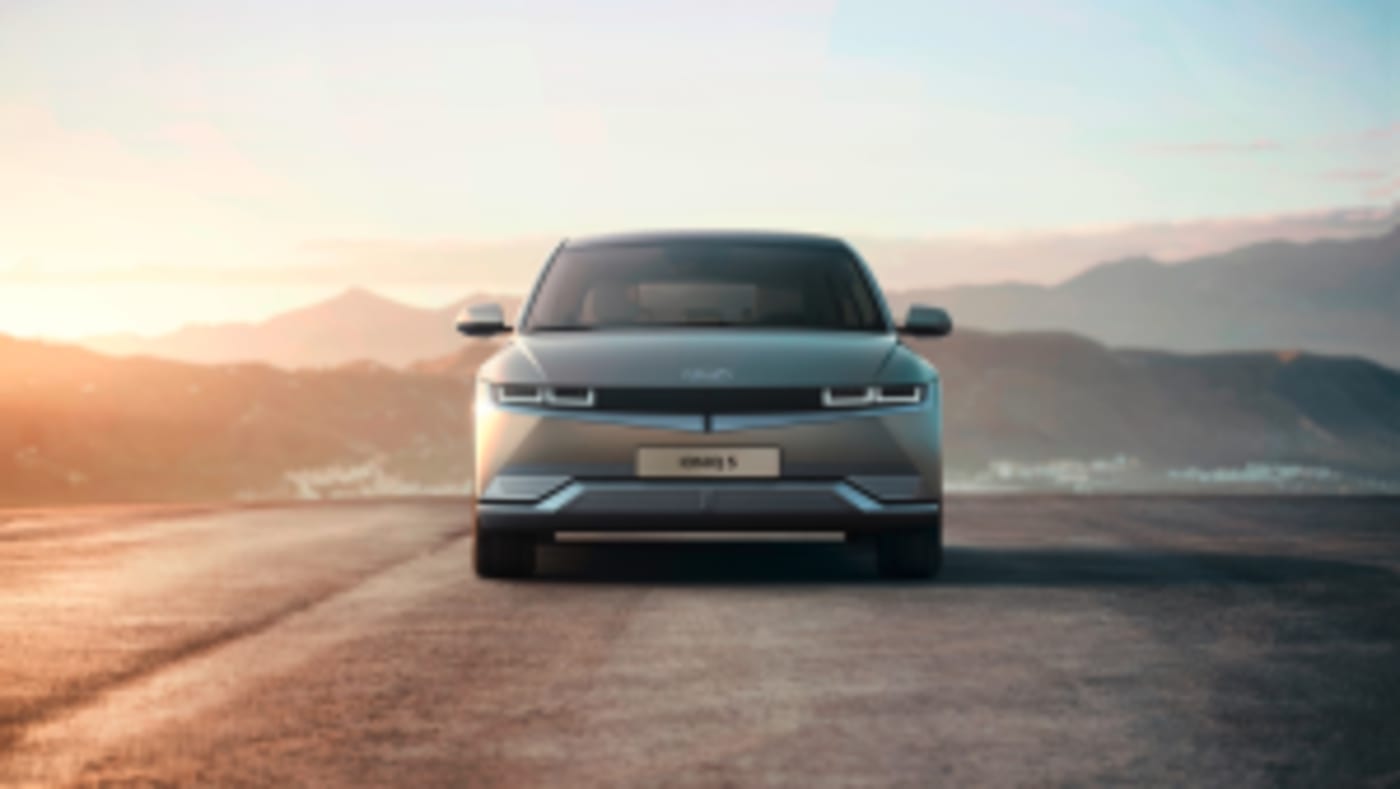

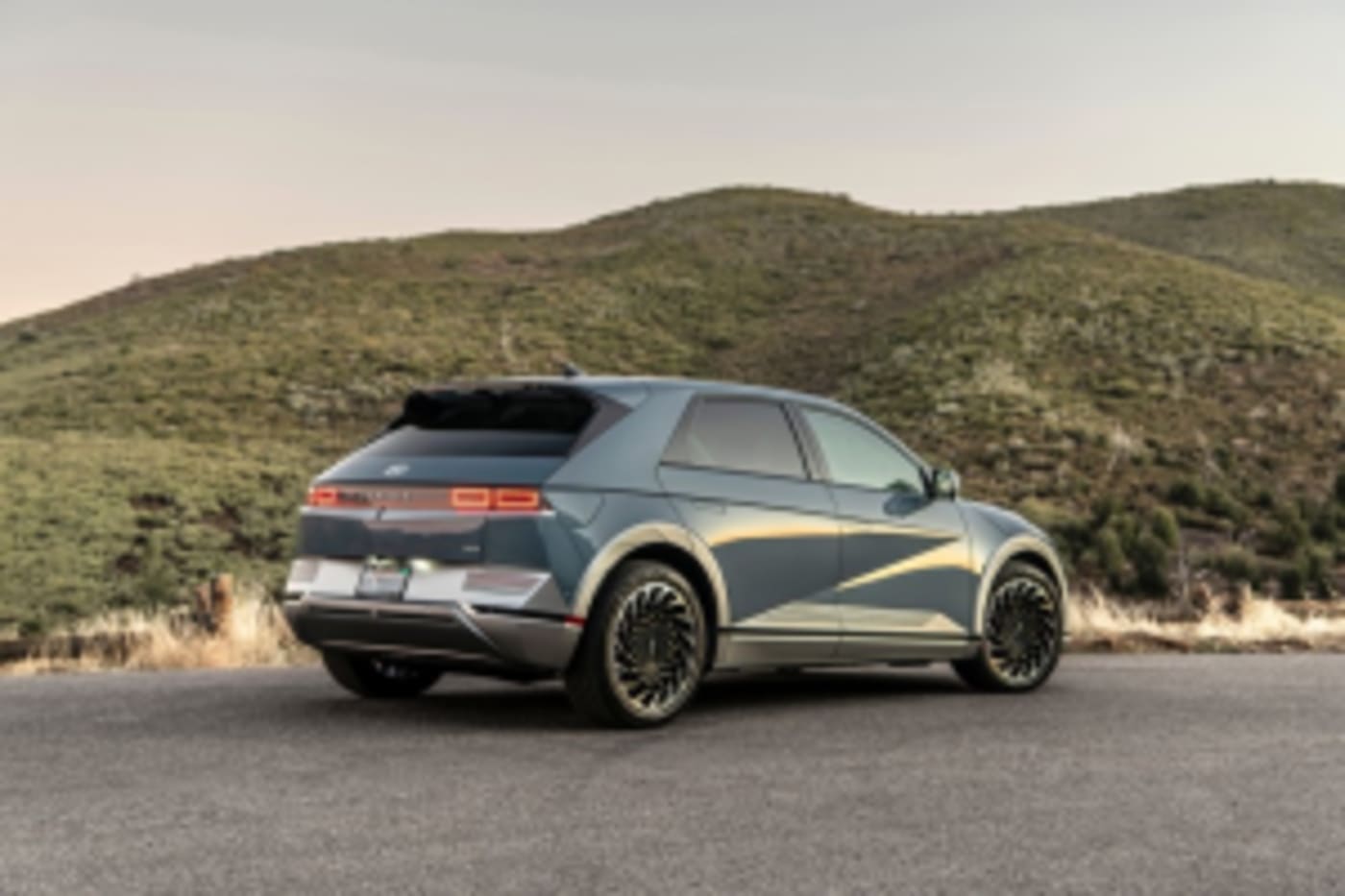
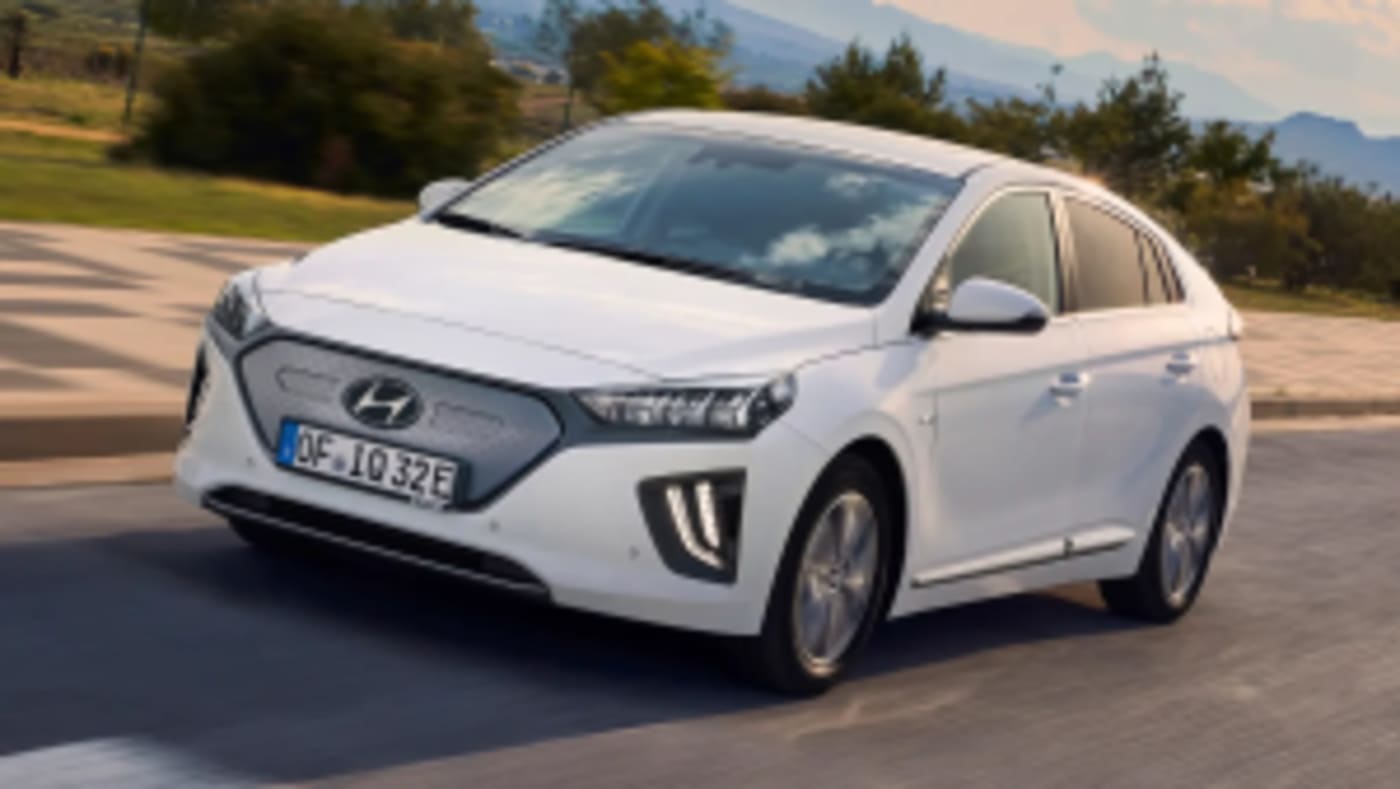


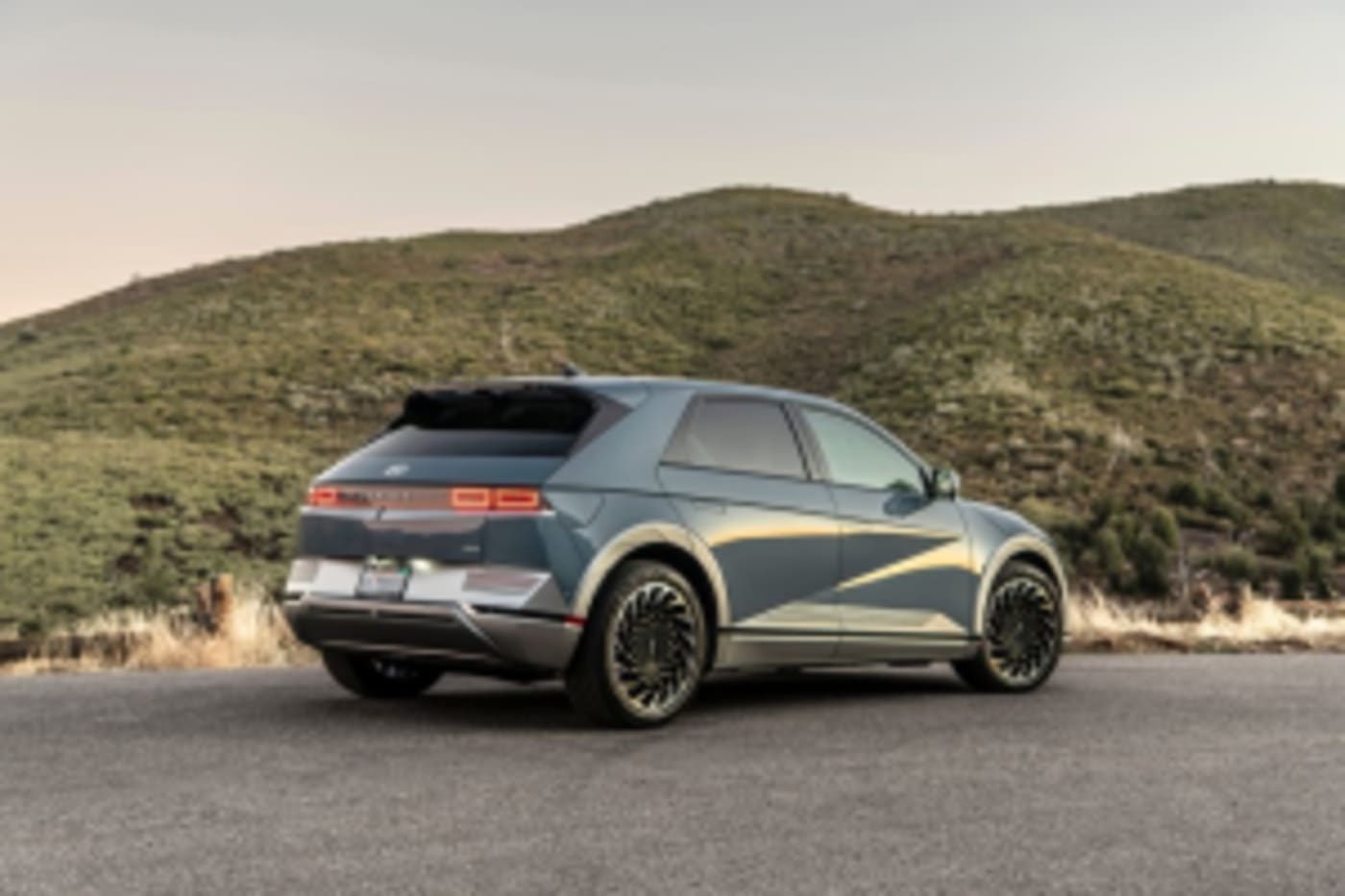
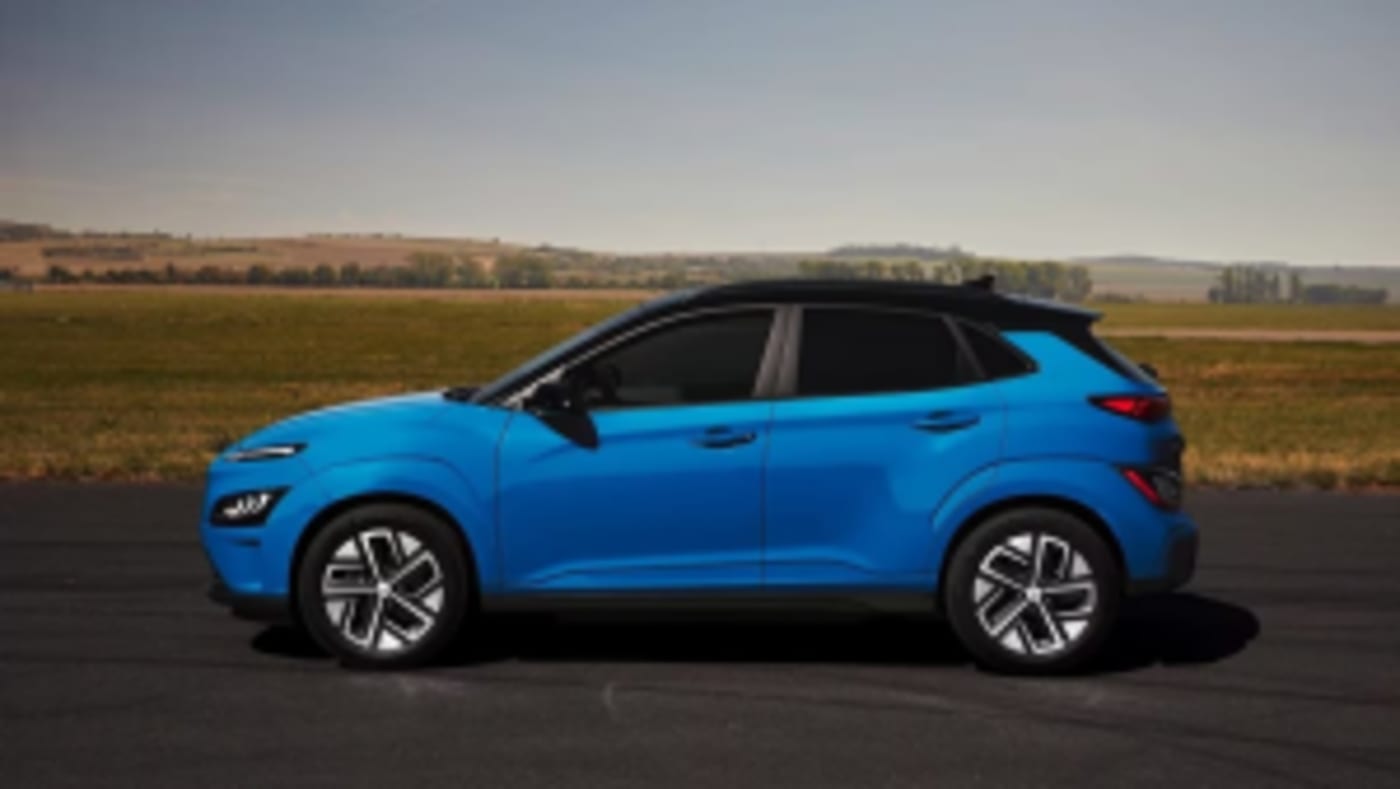
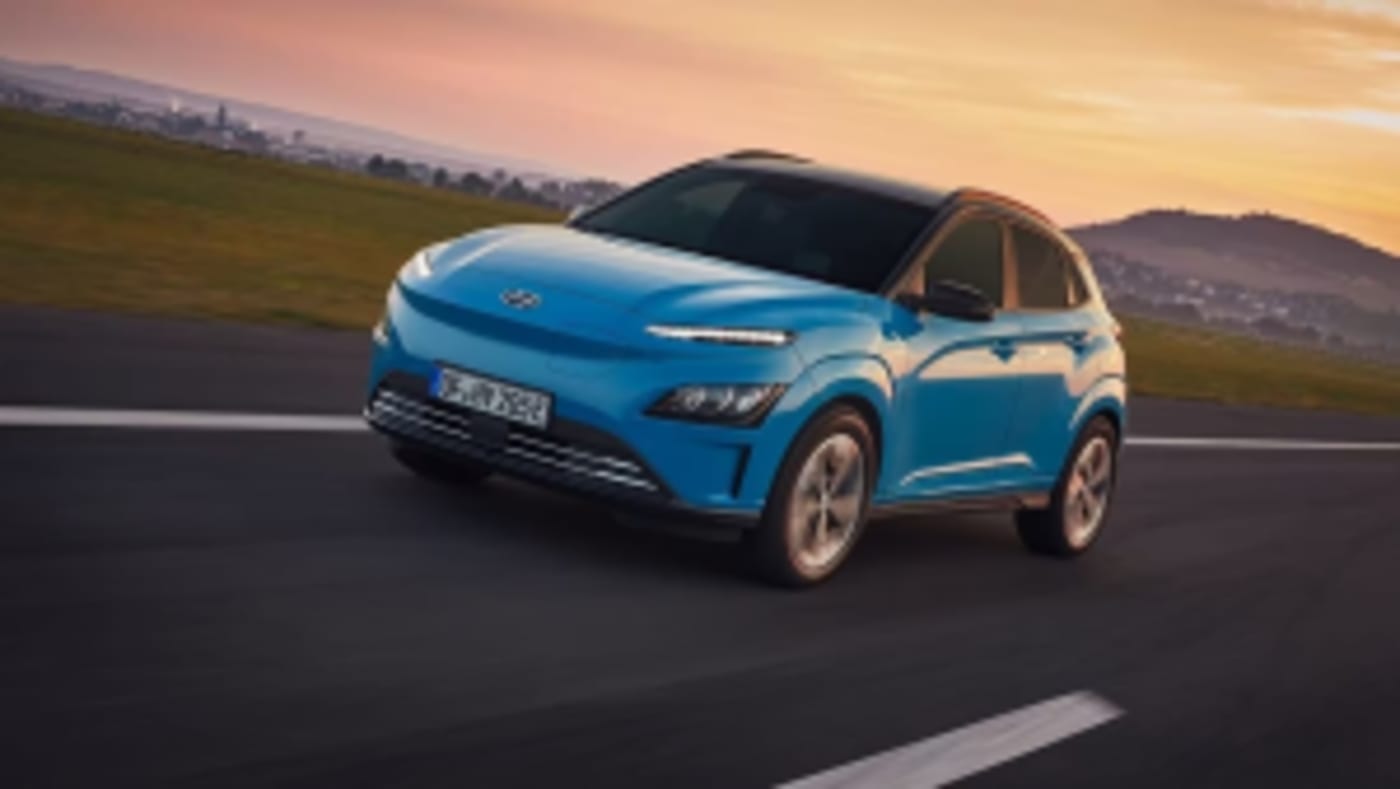

Hyundai electric vehicles
Hyundai, a South Korean automaker, has been producing electric vehicles for several years, and its EV range has been well-received by consumers and critics alike. Here is some information about Hyundai's most popular electric vehicles:
Hyundai Ioniq 5: The Hyundai Ioniq 5 is a midsize electric SUV with a range of up to 303 miles on a single charge. It can accelerate from 0 to 60 mph in 5.1 seconds. The Ioniq 5 comes standard with all-wheel drive and a suite of advanced safety features, including automatic emergency braking, lane departure warning, and adaptive cruise control. The Ioniq 5 is a great choice for drivers who want a spacious and stylish electric SUV with a long range and fast charging capability.
Hyundai Ioniq 6: The Hyundai Ioniq 6 is a sleek and sporty electric sedan with a range of up to 340 miles on a single charge. It can accelerate from 0 to 60 mph in 5.1 seconds. The Ioniq 6 comes standard with all-wheel drive and a suite of advanced safety features, including automatic emergency braking, lane departure warning, and adaptive cruise control. The Ioniq 6 is a great choice for drivers who want a stylish and aerodynamic electric sedan with a long range and fast charging capability.
Hyundai Kona Electric: The Hyundai Kona Electric is a subcompact electric SUV with a range of up to 258 miles on a single charge. It can accelerate from 0 to 60 mph in 7.6 seconds. The Kona Electric comes standard with front-wheel drive and a suite of advanced safety features, including automatic emergency braking, lane departure warning, and adaptive cruise control. The Kona Electric is a great choice for drivers who want a fun-to-drive and affordable electric SUV.
Hyundai Kauai EV: The Hyundai Kauai EV is a subcompact electric SUV with a range of up to 242 miles on a single charge. It can accelerate from 0 to 60 mph in 7.9 seconds. The Kauai EV comes standard with front-wheel drive and a suite of advanced safety features, including automatic emergency braking, lane departure warning, and adaptive cruise control. The Kauai EV is a great choice for drivers who want a stylish and affordable electric SUV.
Hyundai electric vehicles offer a number of benefits, including:
- Long range: Hyundai electric vehicles offer impressive ranges. For example, the Kona Electric has a range of up to 258 miles on a single charge, and the Ioniq 5 has a range of up to 303 miles on a single charge. This is more than enough for most people's daily driving needs.
- High performance: Hyundai electric vehicles are known for their high performance. For example, the Ioniq 5 can accelerate from 0 to 60 mph in 4.4 seconds, and the Ioniq 6 can accelerate from 0 to 60 mph in 5.1 seconds. This makes them some of the quickest electric vehicles on the market.
- Advanced technology: Hyundai electric vehicles are packed with cutting-edge technology. They feature sleek and futuristic interiors with large touchscreen displays and digital instrument clusters. Hyundai electric vehicles also come with a suite of advanced safety features, such as automatic emergency braking, lane departure warning, and adaptive cruise control.
- Reliability: Hyundai electric vehicles are known for their reliability. Hyundai has a long history of building reliable and durable vehicles, and its electric vehicles are no exception.
- Affordability: Hyundai electric vehicles are competitively priced. The Kona Electric starts at $36,665, and the Ioniq 5 starts at $44,375. This makes Hyundai electric vehicles a great value for the money, especially when you consider their impressive range, high performance, advanced technology, and reliability.
What makes Hyundai EVs different from other brands?+
Hyundai EVs have carved out a niche for themselves in the increasingly crowded electric vehicle market with a combination of factors that distinguish them from other brands. Here are some key points to consider:
Range and Efficiency: Hyundai boasts some of the longest ranges among EVs, particularly with models like the Kona Electric and Ioniq 5 exceeding 250 miles on a single charge. This is achieved through a combination of efficient battery technology and aerodynamic design.
Fast Charging: Hyundai invests heavily in fast-charging infrastructure and technology, partnering with Electrify America to provide convenient charging options for its customers. Their EVs also support Level 3 DC fast charging, allowing for significantly faster top-ups compared to Level 2 AC charging.
Value Proposition: Hyundai EVs are generally priced competitively compared to other brands offering similar range and features. This makes them an attractive option for budget-conscious buyers looking for a practical and affordable EV.
Design and Technology: Hyundai's EVs feature modern and stylish designs that stand out from the crowd. They also pack in a plethora of advanced technologies, including driver-assistance systems, connectivity features, and in-car entertainment systems.
Focus on SUVs and Crossovers: Unlike some brands that focus on sedans, Hyundai has prioritized SUVs and crossovers in its EV lineup. This caters to the growing demand for spacious and versatile vehicles, particularly appealing to families and active lifestyles.
Brand Reputation: Hyundai has built a strong reputation for reliability and quality in recent years. This extends to their EVs, giving buyers confidence in their long-term performance and durability.
Warranty and Support: Hyundai offers a generous warranty on its EVs, including a lengthy battery warranty that provides peace of mind for long-term ownership. They also have a growing network of dealerships equipped to service and maintain EVs.
Of course, the choice of the best EV brand ultimately depends on individual needs and preferences. However, Hyundai's combination of range, efficiency, value, design, technology, and focus on SUVs makes them a strong contender in the market, offering a compelling alternative to other established and emerging EV brands.
It's important to note that the EV landscape is constantly evolving, and new models and technologies are emerging all the time. Staying informed about the latest developments and conducting thorough research is crucial before making a purchase decision.
What are the different models of Hyundai EVs available?+
Hyundai offers a diverse range of electric vehicles EVs under its dedicated IONIQ brand and within its main lineup. Here's a breakdown of the current models:
IONIQ Brand:
- IONIQ 5: This stylish crossover boasts a spacious interior, fast charging capabilities, and a range of up to 303 miles EPA estimated. It's available in multiple configurations with rear-wheel drive or all-wheel drive, and two battery pack options.
- IONIQ 6: This aerodynamic sedan features a striking silhouette, ample cargo space, and an impressive range of up to 379 miles EPA estimated. It offers a spacious and tech-laden interior, making it a comfortable and convenient choice for long journeys.
Hyundai Lineup:
- KONA Electric: This compact SUV delivers a fun driving experience, a practical interior, and a range of up to 258 miles EPA estimated. It's a great option for city commuting and weekend adventures.
- NEXO: This fuel cell electric vehicle FCEV) uses hydrogen to generate electricity, producing only water vapor as a byproduct. It offers a long range of up to 380 miles (EPA estimated and quick refueling times, making it a viable alternative to gasoline-powered vehicles in areas with adequate hydrogen infrastructure.
Additional Models:
- IONIQ Electric: This discontinued hatchback was the brand's first dedicated EV and paved the way for future models. It offered a practical and efficient option for urban driving.
- Santa Fe Plug-in Hybrid: This SUV combines an electric motor with a gasoline engine to deliver extended electric range and improved fuel economy.
Please note that the availability of specific models and configurations may vary depending on your region. It's best to check with your local Hyundai dealer for the latest information and options.
How much do Hyundai EVs cost?+
The cost of Hyundai EVs can vary quite a bit depending on the specific model, trim level, and options you choose. However, I can give you a general range and some specific price points for popular models:
General Range:
- Starting prices: Hyundai EVs typically start around $32,000 to $34,000 USD.
- Top-end prices: Fully loaded models with higher range and additional features can reach $42,000 to $45,000 USD or even higher.
Specific Model Examples:
- Hyundai Kona Electric: This popular subcompact SUV starts at $34,010 USD for the SE trim and goes up to $42,380 USD for the Limited trim.
- Hyundai Ioniq 5: This larger SUV starts at $41,000 USD for the SE trim and can reach $54,500 USD for the Limited trim with the extended-range battery.
- Hyundai Ioniq 6: This sleek sedan starts at $43,650 USD for the SE Standard Range trim and goes up to $54,500 USD for the Limited Long Range AWD trim.
Factors Affecting Price:
- Model: As you can see from the examples above, different models have different base prices and price ranges.
- Trim level: Each model typically has several trim levels with varying features and equipment, which affect the price.
- Battery size: Larger battery packs with longer ranges tend to be more expensive.
- Options: Additional features like a sunroof, heated seats, or advanced driver-assistance systems can add to the cost.
Additional Costs:
It's important to remember that the purchase price is just one part of the cost of owning an EV. You'll also need to factor in:
- Charging costs: While charging at home is typically cheaper than gasoline, public charging stations can be more expensive.
- Maintenance costs: EVs have fewer maintenance needs than traditional gas-powered cars, but they still require some regular upkeep.
- Taxes and incentives: Depending on your location, you may be eligible for government incentives that can offset the cost of buying an EV.
Where to Find More Information:
To get the most accurate pricing information for a specific Hyundai EV, I recommend visiting the Hyundai website or contacting your local Hyundai dealer. You can also use online car buying platforms like Kelley Blue Book or Edmunds to compare prices across different dealerships.
What is the range of Hyundai EVs?+
The range of Hyundai EVs varies depending on the specific model and configuration. Here's a quick overview of some popular Hyundai EVs and their estimated ranges:
Fully Electric Models:
- IONIQ 6: 322-338 miles 518-544 km
- IONIQ 5: 238-315 miles 383-507 km
- KONA Electric: 200-261 miles 322-420 km
- NEXO Hydrogen Fuel Cell): 380 miles (611 km
Plug-in Hybrid Models:
- Tucson Plug-in Hybrid: 33 miles electric range, 599 combined miles gas + electric range
It's important to note that these are EPA-estimated ranges, and the actual range you experience will vary depending on several factors, including:
- Driving conditions: City driving generally provides better range than highway driving.
- Driving habits: Aggressive acceleration and high speeds will decrease range.
- Weather: Cold weather can significantly reduce range.
- Vehicle options: Larger wheels and additional features can decrease range.
- Battery age and condition: Batteries degrade over time and use, which can reduce range.
To get a more accurate estimate of the range you can expect from a specific Hyundai EV, you can use the EPA's Fuel Economy website or check the manufacturer's specifications.
How long does it take to charge a Hyundai EV?+
The charging time for a Hyundai EV depends on several factors, including:
- Model: Different Hyundai EVs have different battery capacities and charging capabilities. For example, the IONIQ 5 can charge much faster than the KONA Electric.
- Battery level: Charging from 10% to 80% is much faster than charging from 0% to 100%.
- Charger type: There are three main types of chargers:
- Level 1 120V AC: slowest, typically used at home overnight
- Level 2 240V AC: faster than Level 1, commonly found at home and public charging stations
- Level 3 DC fast charging: fastest, found at public charging stations and can charge most Hyundai EVs to 80% in under an hour
- Environmental factors: Cold weather can slow down charging.
Here are some general charging times for popular Hyundai EVs:
- IONIQ 5:
- Level 2: 10% to 100% in 6 hours and 43 minutes
- 400V DC Public Charging: 10% to 80% in 25 minutes
- 800V DC Fast Charging: 10% to 80% in 18 minutes
- KONA Electric:
- Level 2: 10% to 100% in 9 hours and 19 minutes
- Level 3: 10% to 80% in 54 minutes
- NIRO EV:
- Level 2: 10% to 100% in 7 hours and 40 minutes
- Level 3: 10% to 80% in 40 minutes
For the most accurate charging time for your specific Hyundai EV, you can consult the owner's manual or use the charging calculator on the Hyundai website.
What are the maintenance requirements for a Hyundai EV?+
While Hyundai EVs like the Kona Electric, IONIQ 5, and IONIQ Electric boast significantly less maintenance than gas-powered cars, some regular upkeep is still crucial for optimal performance and longevity. Here's a breakdown of the key maintenance aspects of a Hyundai EV:
Essential checks:
- Battery: Although batteries are robust and come with an extensive warranty 8 years or 160,000 km for Kona Electric and IONIQ 5, 200,000 km for IONIQ Electric, authorized Hyundai technicians should periodically inspect its health and performance.
- Fluids: Unlike gas cars, EVs only require three main fluids: coolant, brake fluid, and windshield washer fluid. Check and top up coolant and washer fluid as needed, and have your technician assess brake fluid level and condition during scheduled services.
- Brakes: While regenerative braking reduces wear, the brakes still need attention. Hyundai recommends checking, cleaning, and lubricating the brakes, including tire rotation, at regular intervals as specified in your manual.
- Tires: EVs often wear tires faster due to their heavier weight. Regularly check tire pressure and tread depth, and ensure proper alignment to maximize tire life and ensure driving safety.
- Wipers: Just like in any car, maintain your windshield wipers for clear visibility. Replace them twice a year or more often if showing signs of wear.
- Cabin filter: Breathing clean air is important! Replace the cabin air filter every 30,000 km or every two years for optimal cabin air quality.
Additional considerations:
- 12V battery: EVs still have a traditional 12V battery for powering auxiliary systems. While it requires less frequent attention than in gas cars, check its condition during scheduled services.
- Software updates: Your Hyundai EV's software may receive updates for improved performance and bug fixes. Regularly check for and install available updates via the car's infotainment system or at your authorized Hyundai dealer.
General recommendations:
- Always refer to your specific Hyundai EV's owner's manual for detailed maintenance intervals and procedures.
- Schedule regular service appointments at your authorized Hyundai dealer for comprehensive checks and any necessary maintenance.
- Don't hesitate to consult your dealer if you notice any unusual performance or warning lights.
Does Hyundai offer any tax credits or incentives for purchasing an EV?+
Unfortunately, Hyundai itself doesn't offer any specific tax credits or incentives for purchasing an EV. However, you might still be eligible for the federal electric vehicle tax credit, which is up to $7,500. This credit applies to new, qualified plug-in electric vehicles EVs) and fuel cell electric vehicles (FCVs purchased in 2023 or later.
Here's a breakdown of the eligibility requirements for the federal EV tax credit:
- Vehicle must be new: The credit only applies to new EVs purchased from a dealer, not used ones.
- Vehicle must be eligible: Not all EVs qualify for the credit. The IRS has a list of eligible vehicles on its website. As of October 26, 2023, only one Hyundai model, the Kona Electric, is still eligible for the full $7,500 credit. Other Hyundai EVs, like the Ioniq 5 and Niro EV, no longer qualify due to new battery sourcing requirements.
- MSRP limits: The credit is available for EVs with a manufacturer's suggested retail price MSRP of less than $55,000 for sedans and $80,000 for vans and SUVs.
You can find more information about the federal EV tax credit on the IRS website: Link
In addition to the federal tax credit, some states and local governments also offer their own EV incentives. You can check with your state and local government to see if there are any additional incentives available.
Here are some resources that you can use to find out more about EV incentives:
- Plug In America: Link
- The Drive: Link
- FuelEconomy.gov: Link
What is the warranty on a Hyundai EV?+
The warranty on a Hyundai EV depends on two main factors: the specific model and the region where you purchased it. However, here's a general overview:
Global Coverage:
- 5-Year Unlimited Mileage Warranty: This applies to most components of the vehicle, including the engine, transmission, and most other parts. This is a generous warranty offering compared to other car manufacturers.
- 8-Year/160,000km High-Voltage Battery Warranty: This covers the battery pack, a crucial component of EVs.
- 7-Year Unlimited Miles Anti-Perforation Warranty: This protects against rust and corrosion.
- 5-Year Unlimited Miles Roadside Assistance: This ensures help if you get stranded.
Specific to US:
- 10-Year/100,000-Mile Powertrain Limited Warranty: This extends coverage for the electric motor and other core powertrain components.
- 10-Year/100,000-Mile Hybrid/EV Battery Warranty: This provides further assurance for the battery, guaranteeing against excessive degradation beyond 70% of its original capacity.
Things to note:
- The specific terms and conditions of the warranty may vary slightly depending on the model and region.
- It's always best to refer to the official warranty documents provided by Hyundai for your specific vehicle to get the most accurate information.
- You can find warranty information on the Hyundai website or by contacting your local Hyundai dealership.
Where can I learn more about Hyundai EVs?+
There are many places you can learn about Hyundai EVs! Here are a few options:
- Hyundai's website: This is a great place to start, as you can find information on all of their current EV models, as well as specs, features, and reviews. You can also find a dealer near you to test drive one.
- Car review websites: There are many car review websites that have in-depth articles and videos on Hyundai EVs. Some popular options include Edmunds, Kelley Blue Book, and Car and Driver.
- YouTube channels: There are also many YouTube channels that focus on EVs, and many of them have videos on Hyundai models. A few popular channels include The Plug Drive, Electrify Now, and Bjørn Nyland.
- EV forums: There are also many online forums where you can talk to other EV owners and enthusiasts. This can be a great way to get firsthand information about Hyundai EVs. A few popular forums include Reddit's r/electricvehicles and Tesla Motors Club.





































